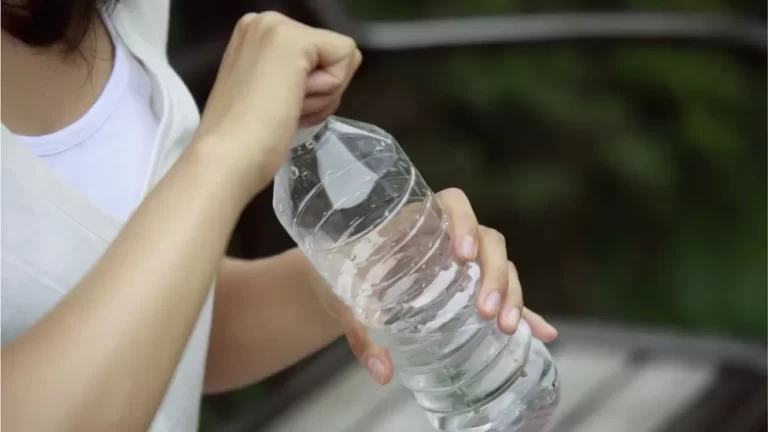Coca-Cola, Danone and Nestle have been accused of making misleading claims about their plastic water bottles being “100% recycled”.
Consumer bodies and two environmental groups have issued a legal complaint to the European Commission over the alleged greenwashing. They argue that the bottles are never made wholly of recycled materials.
Coca-Cola said its packaging messages can be substantiated, while Danone said it is investing in recycling.
Nestle has yet to comment. The complaint focuses on claims by the companies that single-use plastic water bottles they supply are either 100% recycled, or 100% recyclable.
The European Consumers Organisation, backed by the environmental groups Client Earth and ECOS, said this is misleading, particularly when accompanied by green imagery or branding. They insist the bottles are never made wholly of recycled materials, and the ability to recycle them depends on a number of factors, including the available infrastructure.
“The evidence is clear – plastic water bottles are simply not recycled again and again to become new bottles in Europe,” said Rosa Pritchard, plastics lawyer at ClientEarth.
“A ‘100%' recycling rate for bottles is technically not possible and, just because bottles are made with recycled plastic, does not mean they don't harm people and planet.” “It is important companies don't portray recycling as a silver bullet to the plastic crisis – instead they need to focus efforts on reducing plastic at source.”
In response, Coca-Cola said it was “working to reduce the amount of plastic packaging we use, and we're investing to collect and recycle the equivalent of the packaging we use”.
“We only communicate messages on our packaging that can be substantiated, with any relevant qualifications clearly displayed to enable consumers to make informed choices,” it said.
“Some of our packaging carries messages to drive recycling awareness, including whether our packages are recyclable and if they are made from recycled content.” In a statement, Danone said: “We strongly believe in the circularity of packaging – and will continue to invest and lead the campaign for better collection and recycling infrastructure alongside our partners.”
— CutC by bbc.com


